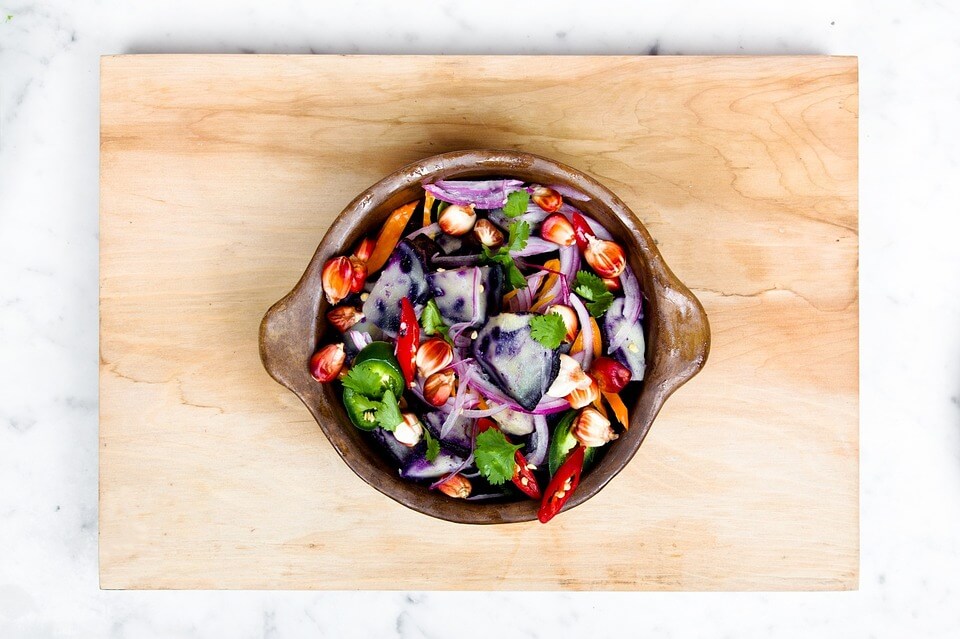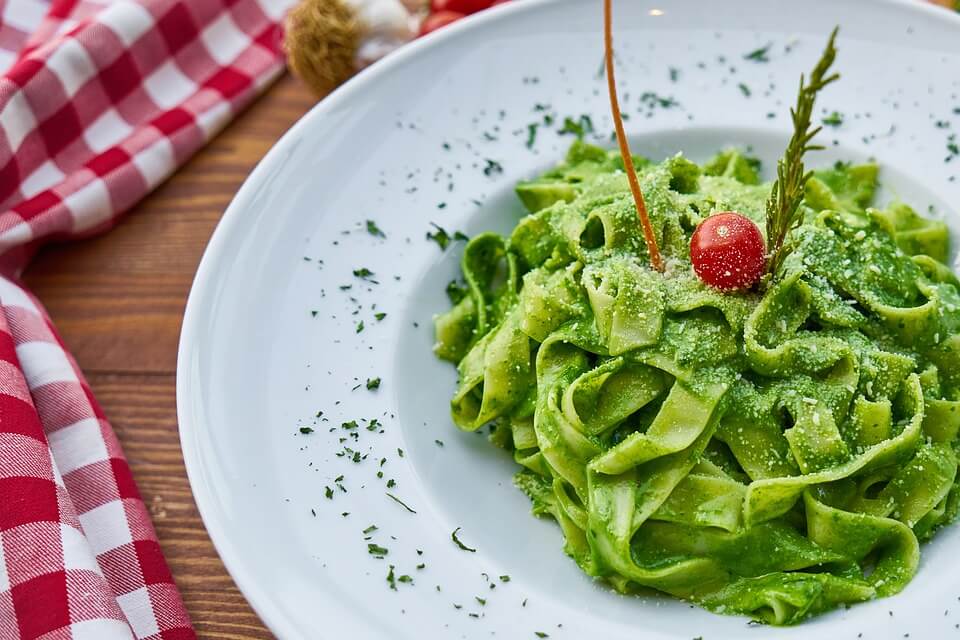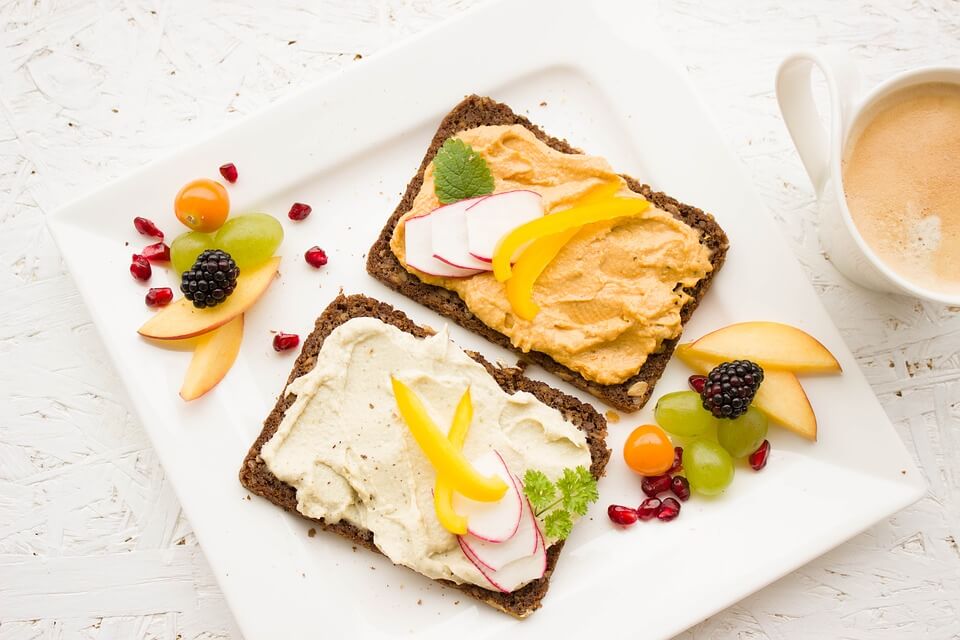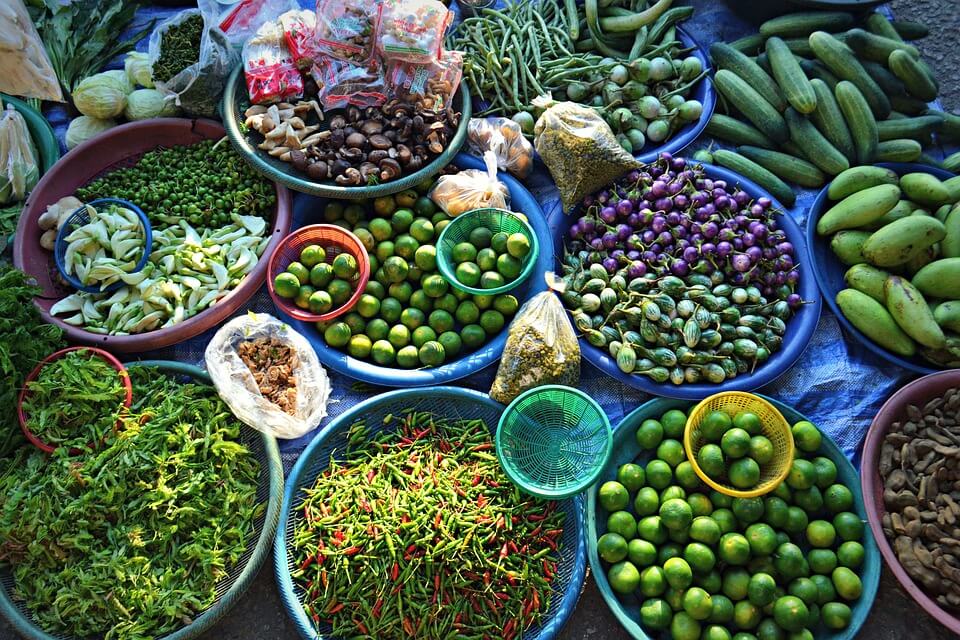Vegetarian and vegan diets alike offer benefits for those interested in using diet to improve obesity, Type 2 diabetes, hypertension and high cholesterol; all of which increase risk for heart disease, and in the case of obesity and uncontrolled diabetes, breast cancer.
Plant-based diets are so popular, that on any given day you have access to an untold number of articles on those topics, simply by opening your browser.
As a lifestyle dietitian who provides diet and nutrition resources to the breast cancer community, my radar is especially high for those articles, with nutrition trends of particular interest. And nutrition/diet fads? I’ve seen more than my share and do my darndest to keep up with the latest.
So when I repeatedly see a specific diet or nutrition topic in the news, steadily gaining ground in its coverage, it has my attention.
I knew something radically controversial or ground-breaking was afoot when a diet/nutrition article on vegan diets made the front page of the Sunday Chicago Tribune in August 2014, a couple of months before my own breast cancer diagnosis.
The article caught my eye because a year earlier I’d transitioned to a 100% vegan diet after a couple of decades eating a lacto/ovo vegetarian (plus seafood/fish) diet.
The piece was also intriguing because not only did it speak to vegan diets, it touted Chicago physician Kim Williams, a cardiologist enthusiastically advocating for the heart health benefits of eating more plants; but he wasn’t simply advocating – Dr. Williams himself follows a vegan diet and recommends plant-based diets to his patients. (1)
A vegan diet is an eating plan long considered somewhat fringe, even extreme, especially “way back” in 2014. Learning that a respected cardiologist (physicians typically aren’t well-versed on or educated in nutrition) was speaking directly to the benefits of a dietary change for heart health surprised me!
Wowza.
Yet in the four and a half years since that article, lots has changed in the plant-based eating world. In fact, plant-based eating has become “a thing.”

The Doctor Will Now Prescribe Your Heart Health Plant-Based Diet
A bit of background: Dr. Williams isn’t just any cardiologist, he’s a nuclear cardiologist, chief of cardiology at Rush University Medical Center in Chicago, and a past president of the American College of Cardiology.
He came to enthusiastically embrace plant-based eating when a nuclear scan on a patient with severe heart disease revealed startling improvement after the patient followed a vegan diet for 6 months; which surprised and intrigued the doctor.
It turns out that despite his deliberate effort to eat what he thought was a heart-healthy diet (avoiding red meat and fried foods, eating chicken without the skin), the doctor’s own LDL cholesterol (the “bad” one) had slowly been creeping up.
After reviewing a number of published studies documenting similar outcomes, he decided to try it himself, and made the switch to a plant-based diet, starting with substituting meat substitutes for animal-protein (as an aside, I recommend using meat substitutes judiciously; they can be ridiculously high in sodium and may contain soy protein isolates – breast cancer nutrition = WHOLE soy foods.) (2, 3)
I share this story because February is American Heart Health month – and one of the best things you can do for your heart is pay attention to the type of diet you eat.
February is also National Cancer Prevention month – and one of the best things you can do to reduce your risk for cancer is to adopt prevention-focused lifestyle behaviors, including paying attention to the type of diet you eat.
Yes, there’s overlap. When you eat for a healthy heart it benefits ALL of you, and vice-versa. And guess what?
You don’t even have to eat a 100% vegan diet to get the heart health and breast cancer risk reduction benefits. (4)
To be sure you execute it in a health-supportive way, a vegan diet requires deliberate attention, education and a learning curve; if you’re not quite on board with that yet, it’s ok. Reducing meat and increasing plants in your diet can automatically uplevel your nutrition and overall health.

Why In The World Would I Eat a Diet of Only Plants?
There are many reasons to eat a diet based on plants, with vegetarian and vegan diets alike offering benefits for those interested in using diet to improve obesity, Type 2 diabetes, hypertension and high cholesterol; all of which increase risk for heart disease, and in the case of obesity and uncontrolled diabetes, breast cancer.
If you hold the belief that meatless diets can’t possibly provide adequate protein (an age-old and frankly, tired argument), consider The Academy of Nutrition and Dietetics position paper on vegetarian diets which states:
“It is the position of the Academy of Nutrition and Dietetics that appropriately planned vegetarian, including vegan, diets are healthful, nutritionally adequate, and may provide health benefits for the prevention and treatment of certain diseases. These diets are appropriate for all stages of the life cycle, including pregnancy, lactation, infancy, childhood, adolescence, older adulthood, and for athletes. Plant-based diets are more environmentally sustainable than diets rich in animal products because they use fewer
natural resources and are associated with much less environmental damage. Vegetarians and vegans are at reduced risk of certain health conditions, including ischemic heart disease, type 2 diabetes, hypertension, certain types of cancer, and obesity. . .” (5)
The key is “appropriately planned”.
Eliminating meat without swapping in solid plant-based protein sources or failing to include plenty of fruits and vegetables isn’t a healthy, balanced approach. See my example below that illustrates this concept.
If you’re looking to improve your heart health AND potentially reduce your risk for breast cancer recurrence or a second primary cancer, I encourage you to give plant-based eating a try. Below I share a few meatless meal ideas that you may already be enjoying – so just eat them more often!

LOW-Nutrition Meatless Meals
Breakfast: Egg bagel with Nutella | Apple juice
Lunch: Slice of cheese pizza | Diet soda
Dinner: Bean and cheese burrito | Iced tea
HIGH-Nutrition Meatless Meals
Breakfast: Whole-wheat bagel with nut butter (peanut, almond, cashew, etc.) | Banana
Lunch: Slice of vegetable pizza (with/without cheese) | Side salad with garbanzo beans | Water – OR – small smoothie of blueberries, carrots, dates, spinach
Dinner: Bean and vegetable burrito | Guacamole | Baked apple w/cinnamon and raisins | Unsweetened iced black or green tea – OR – water
4 Meatless Meal Examples
- Spaghetti with marinara (add side of white beans in garlic and sage + sauteed broccoli)
- Hummus on high fiber crackers (add side of fresh carrots and red bell peppers + red grapes)
- 3-Bean Meatless Chili (add side of shredded red and green cabbage w/cumin dressing + orange slices)
- Chana Masala (a savory Indian chickpea dish) (add side of roasted cauliflower + brown rice)
__________________________________
Thanks for reading my blog post!
Most survivors of hormone-positive breast cancer get anxious when they think about what to eat after finishing treatment, so I’ve created the Peaceful Plate program to help survivors eat with peace, not panic.
When you eat with peace, you feel free to enjoy your food again.
Ready to eat with peace?
CLICK HERE and grab your FREE copy of The Five Foods Survivors Should Eat
CLICK THIS LINK and watch my 2-minute Peaceful Plate program video!
Follow me on Instagram @hormone.breastcancer.dietitian
This information is for educational purposes only and is not intended as medical advice. Please consult your dietitian or doctor for guidance specific to your needs.
Get my FREE nutrition & fitness JUMPSTART worksheet.
SOURCES
1.Top cardiologist touts vegan diet to patients
2. Advice from a Vegan Cardiologist
3. CardioBuzz: Vegan Diet, Healthy Heart?
4. American Institute for Cancer Research: Vegetarian and Vegan Diets
5. Position of the Academy of Nutrition and Dietetics: Vegetarian Diets

